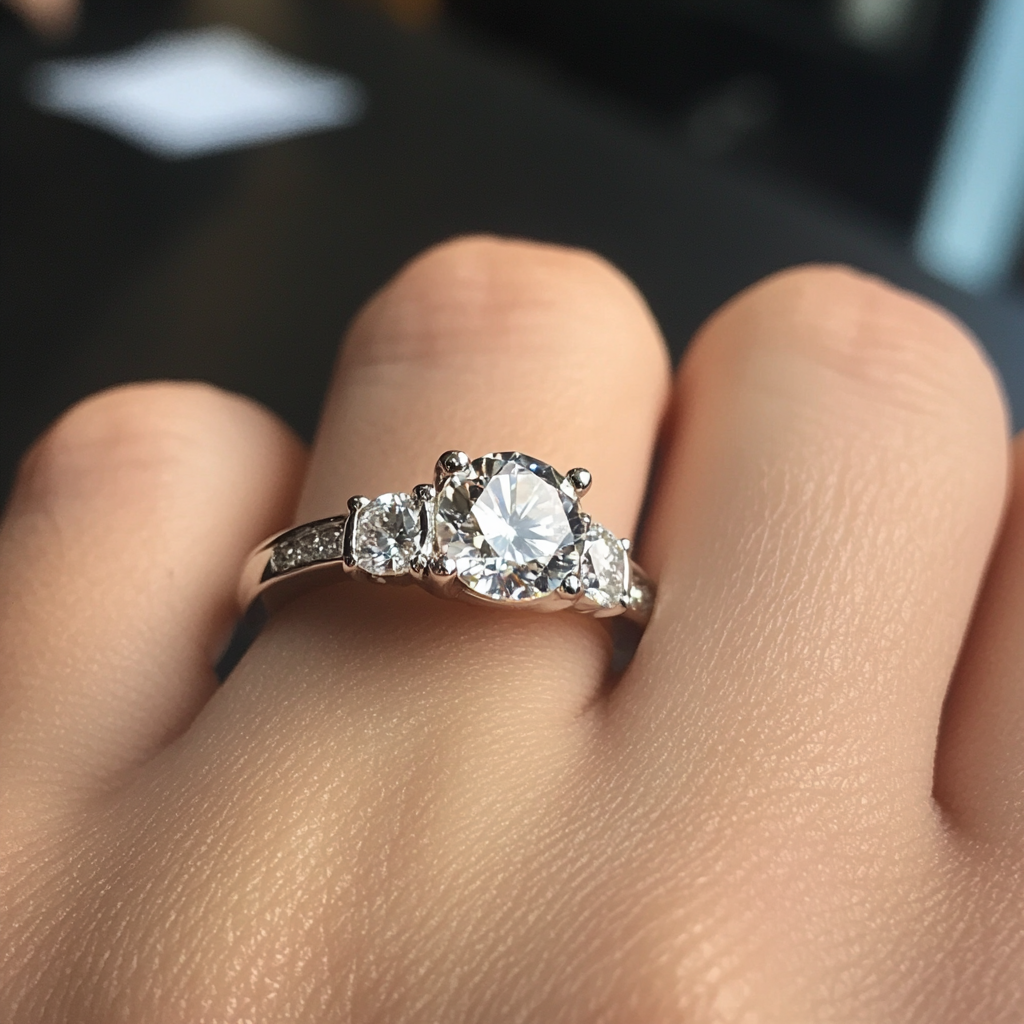Everyone here seems to say that plat scratches easier than white gold, and also that we should get palladium white golds.
Looking up some harness info on the different plat alloys, i see that:
* plat and iridium (5%) is very soft (80hv)
* plat and iridium (10%) is medium hard (110 hv) and recommended by Mark Morrell
* plat and ruthenium (5%) is hard (135hv), as is 5% cobalt.
* some other plat alloys get up to 300 hv with work hardening.
Most of these values are pretty low compared to the typical nickel white gold (18k) alloys, which range from 150 hv to 220 hv. So I can understand why platinum may scratch easier than nickel white gold.
However, the palladium white gold alloys range from 80hv to 180 hv, with 5 out of seven common alloys being 100hv or below.
So my question is- does platinum really scratch more easily than white gold, or does it depend on which alloy you get?
I understand that the common internet platinum is 5% iridium (including vatche etc etc) and this alloy is very soft- especially as most of the rings are cast (so no work hardening benefits). So is the common use of this soft alloy giving platinum the reputation for being easily scratched?
Also, is white gold getting it''s durable reputation mistakingly based on the hard nickel alloys (which are banned in the EU, and losing popularity in the US), rather than a true reflection of a palladium white golds hardness?
Or am i missing something? Is the lack of self burnishing causing platium to show more scratches? Does self-burnishing really help a white gold that has been rhodium plated?
Sorry for the questions, but I am lookin at a setting at the moment and want to work this one out.
cheers
mm
Looking up some harness info on the different plat alloys, i see that:
* plat and iridium (5%) is very soft (80hv)
* plat and iridium (10%) is medium hard (110 hv) and recommended by Mark Morrell
* plat and ruthenium (5%) is hard (135hv), as is 5% cobalt.
* some other plat alloys get up to 300 hv with work hardening.
Most of these values are pretty low compared to the typical nickel white gold (18k) alloys, which range from 150 hv to 220 hv. So I can understand why platinum may scratch easier than nickel white gold.
However, the palladium white gold alloys range from 80hv to 180 hv, with 5 out of seven common alloys being 100hv or below.
So my question is- does platinum really scratch more easily than white gold, or does it depend on which alloy you get?
I understand that the common internet platinum is 5% iridium (including vatche etc etc) and this alloy is very soft- especially as most of the rings are cast (so no work hardening benefits). So is the common use of this soft alloy giving platinum the reputation for being easily scratched?
Also, is white gold getting it''s durable reputation mistakingly based on the hard nickel alloys (which are banned in the EU, and losing popularity in the US), rather than a true reflection of a palladium white golds hardness?
Or am i missing something? Is the lack of self burnishing causing platium to show more scratches? Does self-burnishing really help a white gold that has been rhodium plated?
Sorry for the questions, but I am lookin at a setting at the moment and want to work this one out.
cheers
mm



300x240.png)